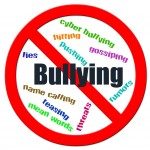 In general, bullying behavior in school can be different when dealing with boys and girls. This is a rather general statement, so there will be times when they can be the same. While both boys and girls will experience bullying by being made fun of for the way they look, act or speak, boys will experience hitting, pushing and bumping more often than girls.
In general, bullying behavior in school can be different when dealing with boys and girls. This is a rather general statement, so there will be times when they can be the same. While both boys and girls will experience bullying by being made fun of for the way they look, act or speak, boys will experience hitting, pushing and bumping more often than girls.
On the other hand the bullying in school by girls will be an experience of exclusion, having rumors spread, and sexual comments from both boys and other girls. In fact while boys will target both girls and boys with bullying behavior, generally girls will more often target other girls. In fact there is a term, relational aggression, that is used to describe their behavior that is so harmful against each other.
So what should we do if we suspect bullying is going on? This is the time to stay calm and draw them out with questions that may encourage them to speak about their experiences and feelings. Being aware of changes in their pattern of behavior, such as not hanging out with someone who was a close friend, or not wanting to go to school, or walk home from school is very important for us as parents. Many times our children will not want to discuss what is going on, not because they do not want to, but they may be embarrassed or feel like it is their fault.
So when we hear their feelings we must be careful too, not to pass it off too quickly or minimize the bullying by asking them to “just let it go”, or “it will get better”, or making excuses for the individual that is behaving in a way to hurt the feelings or them physically. What our child needs may not be advice as much as validation about how they are feeling at that moment.
We will want to allow our child to express how they are feeling, what their concerns are, and do our very best to understand what is going on. We as parents want to help, in fact sometimes too much, and in so doing we get in the way of our child’s growth and personal development in conflict resolution and learning to solve their own problems that they face.
In the past many of us, including myself have given our children advice on bullying prevention like, “Just ignore the bully”, “When they start picking on you, just walk away.”, or “See if you can stay with a group of friends and they won’t pick on you then”. Kids know that these are quick fix phrases that adults like to use, and while they are valid, there is other work that must be done first.
This is such a difficult thing for us to see as parents, but now is the time to remain calm and respond to our children’s needs and listen to how they are feeling. The way you listen, hopefully calmly and thoughtfully, will determine if your child will want to or will talk to you about this issue in the future. Be supportive, suggest that you are willing to help your son or daughter to find some other ways of dealing with the problem of bully prevention. This is the time to acknowledge with your child that this is a difficult problem and that you know that their is no easy fix, but that you are willing to continue thinking about it and talking to them about how they can solve the problem.
You can and should come back to the conversation and see what sort of strategies your child is trying and what the response of the other person has been. You are there to help, it just may not be the time to try to jump in and try to fix it yourself. Now is the time to give your child the tools they need to prevent bullying without your intervention. Is this difficult? YES! In the long run though it is the best and the right thing to do unless there is imminent physical threat.







